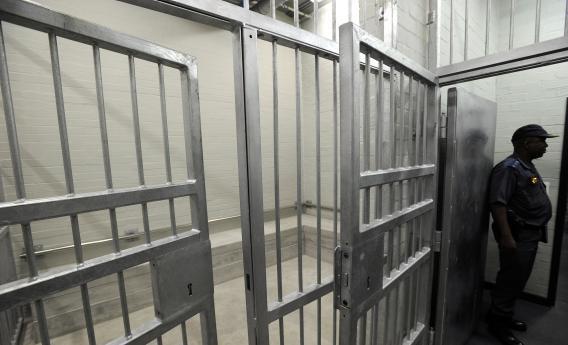The Wall Street Journal had a good piece recently about the prevalence of false confessions among teenage criminal suspects, and what police departments might be able to do to drop that number. Here’s Zusha Elinson:
Juveniles are more likely than adults to confess to crimes they didn’t commit, a growing body of evidence suggests. Thirty-eight percent of exonerations for crimes allegedly committed by youth under 18 in the last quarter century involved false confessions, compared with 11% for adults, according to a new database of 1,155 individuals who were wrongly convicted and later cleared of all charges.
Why so many false confessions? Juvenile suspects are generally more deferential to authority—at least in the context of a police interrogation—and less likely to understand the consequences of confessing to something they didn’t do. “Juveniles are particularly vulnerable: they tend to [be] impulsive, they tend to be more focused on short-term gratification like ‘If I confess can I go home?’ ” a Northwestern University professor who has been studying the phenomenon told the Journal. Many police officers understand this, of course, and will play on a teen suspect’s gullibility and inexperience in order to extract a confession.
It’s not necessarily the case that a police officer will out-and-out lie to a suspect about what will happen if he does or does not confess, although that’s certainly been known to happen. But if an interview tape or transcript is filled with those sorts of misrepresentations—like promises of lenient treatment in court, for example—then a judge may well suppress the confession when the case comes to trial, on the grounds that the interrogator’s methods were coercive. Cops don’t necessarily have to disabuse suspects of their perhaps-fanciful notions of what’s going to happen after a confession is signed, but directly leading them on can put a case in jeopardy, whether the defendant is 15 or 51.
But courts generally don’t mind if an interrogator tricks a suspect into confessing by falsely claiming that a witness exists who can identify the suspect, for instance, or that the suspect’s accomplice has already confessed. (In other words, courts recognize a difference between misleading a suspect about the progress of an investigation and misleading a suspect about the likely outcome of his confession or his failure to confess.) Juvenile suspects, being younger and less experienced than older criminals, are more susceptible to this sort of deception. Say you’re a 15-year-old, and you’ve been in an interrogation room all night being questioned about a crime that you didn’t commit. Here comes a police officer, who swears to you that witnesses have implicated you in the crime. You may well assume that he’s telling the truth. And, regardless of your culpability, you may decide that they’re probably going to convict you anyway, and that confessing now will at least mean that the interrogation will end and you’ll be able to go to bed.
As the Journal article reports, various criminal justice reformers now believe that young suspects shouldn’t be subject to these tricks, and that all interrogations should be filmed to ensure that these tricks aren’t employed. Many cops aren’t happy about this, and they have a point. Courts have ruled that the police are allowed to use intrinsic misrepresentations to extract confessions, because the justice system wants cops to be able to extract confessions, to solve cases and put criminals behind bars. A homicide is a homicide, regardless of the suspect’s age. Why should cops be hobbled in their attempts to solve a homicide simply because the suspect is underage?
While I sympathize with this argument, I ultimately find it unconvincing. I’ve written a lot lately about the reasons why the justice system differentiates between juvenile and adult defendants. Juveniles aren’t fully developed yet, and aren’t as responsible for their actions; thus, it’s only right that, in most circumstances, they’re held to a different, more lenient standard. This is why you cannot execute a defendant or impose a mandatory life-without-parole sentence for crimes committed while he or she was underage. This is why we have juvenile courts. And this is why, despite the fact that it might make their jobs harder, police interrogators ought to treat younger suspects with kid gloves. This might mean that cops don’t get nearly as many juvenile confessions. But it might also mean that the ones they do get will be more reliable.
